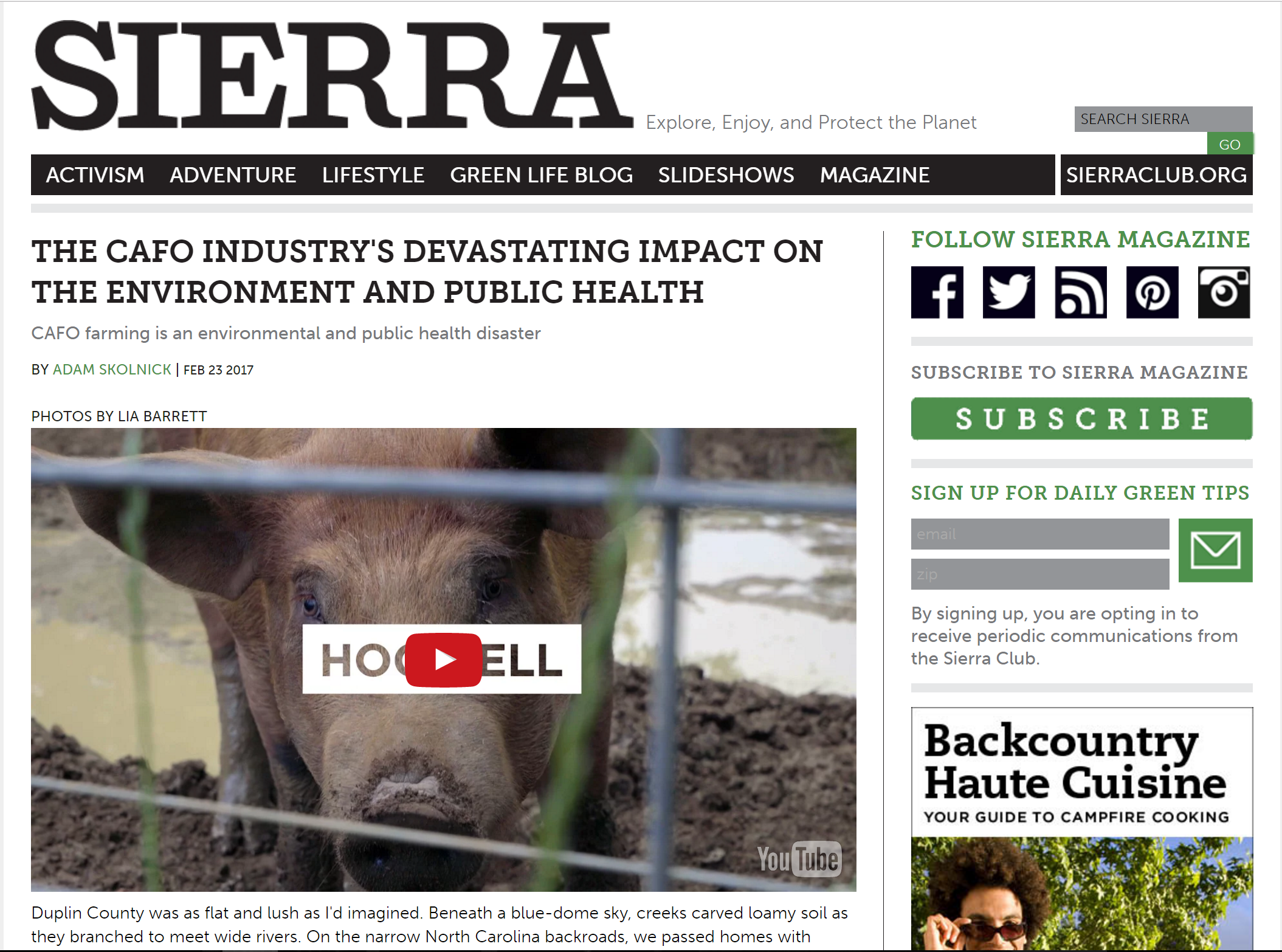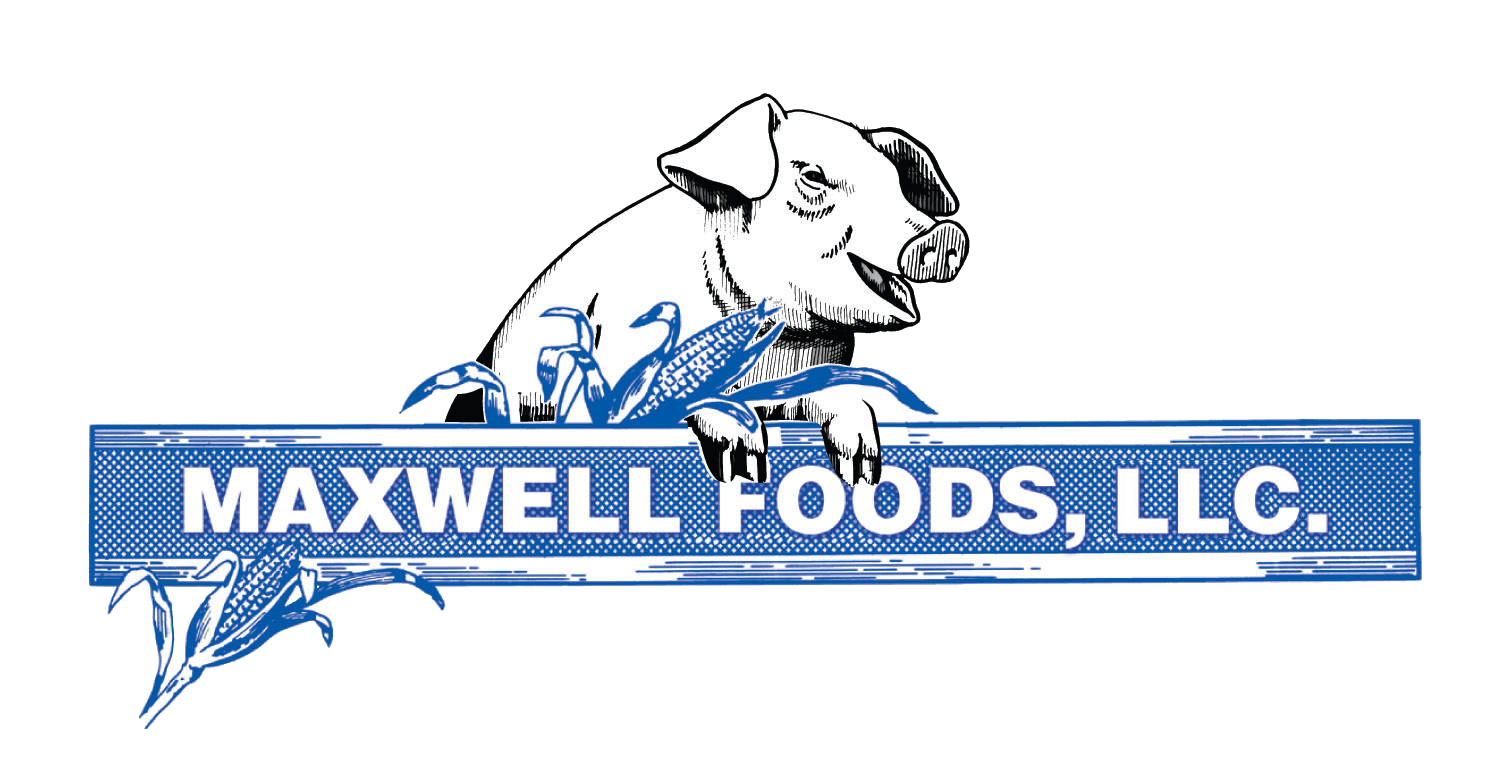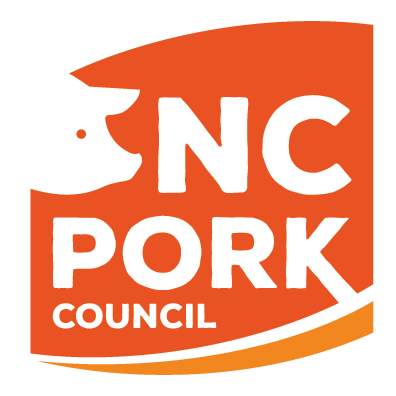Lawyers, Hog Farmers, & Elsie Herring's Story
Stepping to the microphone, Mrs. Elsie Herring – a Community Organizer for the Environmental Justice Network in Duplin County – explained to the reporters at the press conference why she opposed House Bill 467. Mrs. Herring repeated the same charges she’d made for years: She said a farmer sprays hog waste eight feet from her house. She’s also said, in interviews, she lives as a prisoner in her own home – that she can’t go outside because of the smell.
It’s a horror story. But is it true?
Is a hog farmer actually spraying waste eight feet from Elsie Herring’s house?
Details of Elsie Herring’s Story
Here’s a photo of Mrs. Herring’s house:
From her house, you can’t even see the farmer’s field. It’s on the far side of the trees.
Here’s another photo – an aerial photo – of Mrs. Herring’s house, the trees, and the farmer’s field on the far side of the trees. The farmer’s field where he sprays is 900 feet* – not eight feet – from Mrs. Herring’s house. The field closest to Ms. Herring’s house is 200 feet from her house, but has not been sprayed in 3 years. State law says no farmer can spray within 200 feet of a neighbor’s house.
And here’s a photo Mrs. Herring, interviewing with another reporter, saying she’s a prisoner in her own house – while sitting on her front porch. Outside.
The Truth About NC Hog Farmers
By law, every hog farmer must file a record with the state every time he sprays.Four years ago, out-of-state lawyers – who saw hog farms as ripe targets for an unusual type of lawsuit – came to eastern North Carolina and went to work, going door to door, signing up clients.
They said: We’ll bring the suits, we’ll pay the bills, and, if we win, we’ll split the money. Elsie Herring was one of the people who signed up.
On the internet, the debate over House Bill 467 has turned into a political brawl with half-true and untrue charges flying. What House Bill 467 actually does is simple – and here’s why it will make a difference: This legislation will protect family farmers from lawsuits by predatory lawyers.
*This distance has been updated to reflect a more current situation.
A Response to Sierra Club's, "Hog Hell"
Meet Adam Skolnick He’s a freelance writer from California. He didn’t study journalism but loved to travel, so he decided to “write my way around the world.”
His travels recently brought him to Duplin County to write about North Carolina hog farms for the Sierra Club magazine. Most trips like this require a knowledgeable tour guide who knows the lay of the land, and that’s where poor Adam made his first mistake.
Rather than talk to a hog farmer or perhaps a professor of agriculture at NC State, Adam asked the Cape Fear Riverkeeper to be his guide. And when you rely on a guide with a knack for distorting the truth, you end up with an article that gets even the most basic facts wrong.
In the very first paragraph, Skolnick describes the Duplin County landscape, including barns “built tall for drying tobacco, which along with rice… used to blanket this rich earth.”
Huh? No one has grown rice in North Carolina since the 1800’s. Even then, it wasn’t much - and it certainly wasn’t grown in Duplin County.
Adam Skolnick had made a mistake – and he was about to make another.
He wrote that Smithfield Foods was once a “U.K.-Owned” company. But Smithfield Foods is located in Virginia, not England. It’s never been British owned.
The blunders continued to pile up.
He interviewed a local resident and listened to her explain that she never goes outside anymore because of the odor from nearby hog farms. It never occurred to him he was interviewing her on her front porch. Outside.
He showed a hog farm in a video, then showed a sewage pipe spilling pollution into a stream. But the pipe had nothing to do with the hog farm. It wasn’t even on the farm.
He wrote about odors from hog farms causing asthma, but official health reports show asthma rates in Duplin County are declining.
And, of course, he repeated the Waterkeepers’ tale about hog lagoons failing during Hurricane Matthew. He never mentioned, if he even knew it, that more than 99.5% of the state’s lagoons had no leaks or spills.
Adam Skolnick may have meant no harm. But he didn’t check the facts. And he fell for the Waterkeepers’ mantra about the evils of hog farming hook, line and sinker. Unfortunately, the Sierra Club magazine published it all.
Former Pork Council CEO Receives Lois Britt Service to the Industry Award
 Deborah Johnson, who led the N.C. Pork Council for over a decade before leaving in 2016, became the seventh honoree of the Lois Britt Service to the Industry award. This special award celebrates the spirit of Lois Britt, who devoted her life to agriculture, education and service to the pork industry. It is awarded at the discretion of the N.C. Pork Council’s officers.“It is a pleasure to present this award to a friend of Lois’ and a friend of mine,” said Jan Archer, president of the National Pork Board. “Deborah Johnson did so much to support our industry. Thanks to her leadership, the N.C. Pork Council and the pork industry are better off today.”Deborah grew up on a farm and has always been an advocate of agriculture. After graduating from the University of North Carolina, she began her career in the pork industry with Prestage Farms. She also worked for NC State Ports Authority and Cape Fear Farm Credit before joining the NC Pork Council.During her time as CEO of NCPC, strong relationships were formed, and Deborah worked tirelessly to be an advocate for farmers and the industry. Her leadership saw an increase in barbecue promotion, and NCPC was able to be a founding sponsor for the award-winning PBS series "A Chef's Life." She was also a huge support system for NC Farm Families for which we are so appreciative.Deborah has done so much for North Carolina pork industry, and for that we are so grateful. She certainly has a servant's heart and a passion for agriculture. Deborah is certainly deserving of this award.
Deborah Johnson, who led the N.C. Pork Council for over a decade before leaving in 2016, became the seventh honoree of the Lois Britt Service to the Industry award. This special award celebrates the spirit of Lois Britt, who devoted her life to agriculture, education and service to the pork industry. It is awarded at the discretion of the N.C. Pork Council’s officers.“It is a pleasure to present this award to a friend of Lois’ and a friend of mine,” said Jan Archer, president of the National Pork Board. “Deborah Johnson did so much to support our industry. Thanks to her leadership, the N.C. Pork Council and the pork industry are better off today.”Deborah grew up on a farm and has always been an advocate of agriculture. After graduating from the University of North Carolina, she began her career in the pork industry with Prestage Farms. She also worked for NC State Ports Authority and Cape Fear Farm Credit before joining the NC Pork Council.During her time as CEO of NCPC, strong relationships were formed, and Deborah worked tirelessly to be an advocate for farmers and the industry. Her leadership saw an increase in barbecue promotion, and NCPC was able to be a founding sponsor for the award-winning PBS series "A Chef's Life." She was also a huge support system for NC Farm Families for which we are so appreciative.Deborah has done so much for North Carolina pork industry, and for that we are so grateful. She certainly has a servant's heart and a passion for agriculture. Deborah is certainly deserving of this award.
Farmkeepers Blog
The Farmkeepers is the official blog of NC Farm Families. It is here that words will flow, our voice will be heard, a stand will be made, and the farm families of North Carolina will be protected. In these posts, we'll set the record straight. You'll see the faces of the families who feed us. Here, you'll receive all the updates and news. It is here that we will fight for farmers and be the keepers of the farm in NC. We hope you'll join us. Follow along on social media and by joining our email list.




















